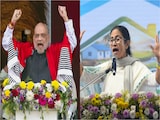South Korea's government is due to unveil plans on Monday aimed at curbing the country's burgeoning spending on private education, which has been blamed for being a major factor behind the country's declining fertility rate.
The move comes as President Yoon Suk Yeol this month criticised college entrance tests that incorporate questions not in the curriculum at public schools, including some that have been dubbed "killer questions" due to their complexity.
South Koreans spent a record 26 trillion won ($19.97 billion) on private education last year, despite a declining student population, a joint report by the education ministry and the government statistics bureau showed.
Nearly eight in 10 students take part in private education such as cram schools, known as "hagwons", according to the report.
This heavy reliance on private education has helped result in South Korea having the world's highest cost of raising a child, according to a report last year, and the world's lowest birth rate.
Shares of education-linked companies in South Korea fell early Monday on caution ahead of the government's announcement.
Woongjin Thinkbig fell more than 2% to near five-month lows, while Multicampus and MegaStudyEdu lost about 1% each.
The education ministry is expected on Monday to define and give examples of "killer questions" and order them to be removed from this year's tests, which are scheduled for November.
Public schools do not normally cover such questions, opening the door for "hagwons" to promote their ability to teach students the skills to solve them.
Proponents of such questions say they help colleges select candidates in a competitive environment, but Yoon cited the issue of fairness, noting not every family could afford to pay for expensive extracurricular classes.
Shin So-young, an activist at civic group, The World Without Worry About Private Education, said the changes planned by authorities may not be enough to contain the high competition in the education system.
"The government needs to come up with a broader plan that addresses the question of how to alleviate this excessive competition to get into a few of the best universities," said Shin.
(Except for the headline, this story has not been edited by NDTV staff and is published from a syndicated feed.)















